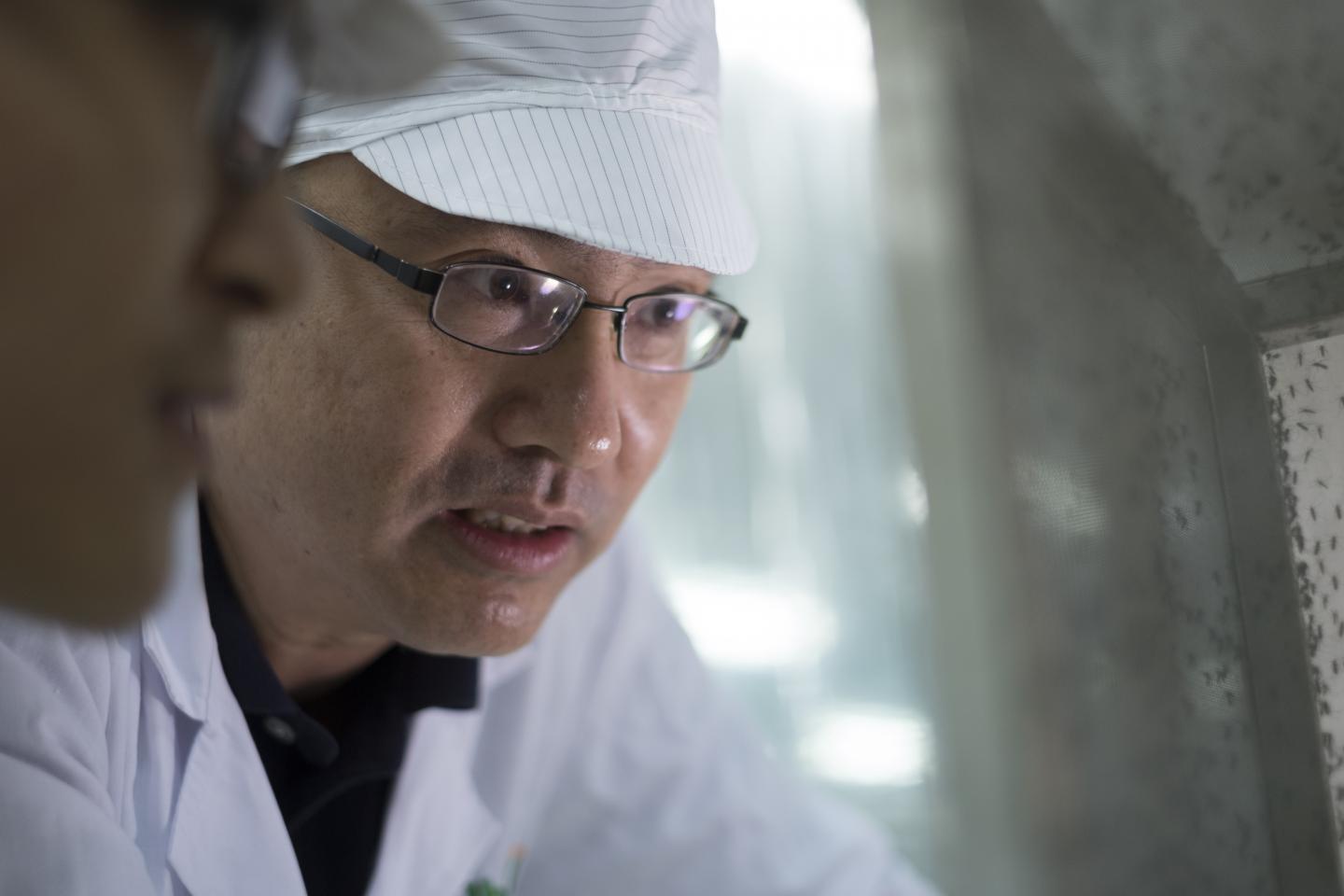
Credit: Photo by Jim Peck
Michigan State University has landed a highly competitive grant from USAID to fight the Zika virus in Mexico.
The $1 million grant was awarded to Zhiyong Xi, MSU associate professor of microbiology and molecular genetics, to build a mosquito factory in Yucatan, Mexico. The laboratory will be modeled after a facility in Guangzhou, China, a center that Xi leads in partnership with Sun Yat-sen University.
"Traditional efforts to control disease-ridden mosquitoes have relied heavily on chemical insecticides and have failed to have an impact on diseases such as Dengue fever," said Xi, who's also the director of Sun Yat-sen University-Michigan State University Joint Center of Vector Control for Tropical Diseases. "They will unlikely be efficient for Zika control because the same mosquito species transmit both diseases. There is a critical need to develop novel intervention strategies to control Zika transmission."
In China, Xi weekly breeds millions of male mosquitoes infected with Wolbachia bacteria, a strain that is naturally found in many species of mosquitoes but is not dangerous to humans. When the infected males are released into the wild, they mate with females, which renders them sterile.
As part of a one-two punch, the researchers also will seed Wolbachia-infected females to establish a viral-resistant population. Once the resistant population grows to a certain density, males carrying a second Wolbachia strain are released to further suppress the population. By reducing both mosquito density and the ability of mosquitoes to transmit viruses, the project, when fully deployed, expects to arrest disease transmission immediately, Xi said.
Building on the initial success in Guangzhou, Xi will coordinate efforts in Yucatan with multiple agencies of the Mexican government, the governor of Yucatan and Universidad Autonoma de Yucatan to breed and conduct field tests in the region.
"Our field test in China reduced mosquito populations by more than 90 percent. And since we took the time to conduct the necessary outreach, from federal Chinese agencies to going door-to-door in the village of the field test, we had 90 percent support from the public for our work." Xi said. "We believe that we'll be able to duplicate similar results in Mexico and, later, in other parts of the world."
Xi's grant is part of USAID's Combating Zika and Future Threats Grand Challenge, which funded 21 projects from 900 submissions. USAID is investing up to $30 million in groundbreaking innovations from around the world to address the current Zika outbreak and improve the ability to prevent, detect and respond to future infectious disease outbreaks.
###
Media Contact
Layne Cameron
[email protected]
517-353-8819
@MSUnews
http://msutoday.msu.edu/journalists/
############
Story Source: Materials provided by Scienmag





